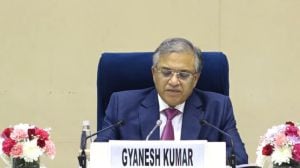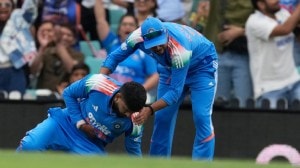Lifter Chanu blows sports minister’s cover
The drugs cloud over Indian sport just won’t go away. Close on the heels of the National Games fiasco comes the news that weightlifter ...

The drugs cloud over Indian sport just won’t go away. Close on the heels of the National Games fiasco comes the news that weightlifter Sanamacha Chanu — who won three gold medals at last year’s Commonwealth Games — has tested positive for the second time in her career and is likely to face a life ban. The test was conducted at last month’s national weightlifitng championship in Lucknow.
Ironically, the news came even as Sports Minister Vikram Verma told The Indian Express that doping took place mostly among junior athletes (see story on page 14). ‘‘How many top athletes have been caught?’’, he asked.
Chanu was last caught in 1995 and, according to highly placed sources in the Sports Ministry, ‘‘there is no way a life ban can be avoided’’.
Chanu has been in several controversial situations, most well-known being her last-minute in the 2000 Olympics squad at the cost of veteran Kunjarani. Her case was strongly supported by members of the weightlifting federation’s ad-hoc committee but Chanu failed to even complete her lift in a relatively easy category.
She was also accused of forging her age certificate to participate at an international meet. Now, she has tested positive for doping for the second time — a life-ban offence under international rules.
Weightlifting in India has seen the most cases of doping. It is perhaps no coincidence that, for the past couple of years, the Indian Weightlifting Federation has been run by an ad-hoc committee which has faced charges of laxity in enforcing punishment.
Most glaring is the case of P Sailija, who tested positive at the Junior National championship held earlier this year. It was, again, her second offence: she had tested positive for steroids in 2000 but was allowed to participate in the National Games next year. In violation of the two-year ban a steroids-related offence automatically attracts.
Incidentally, both Sailaja and Chanu have been shortlisted by the IOA’s Development Commission for the Olympic Gold Project.



- 01
- 02
- 03
- 04
- 05




























